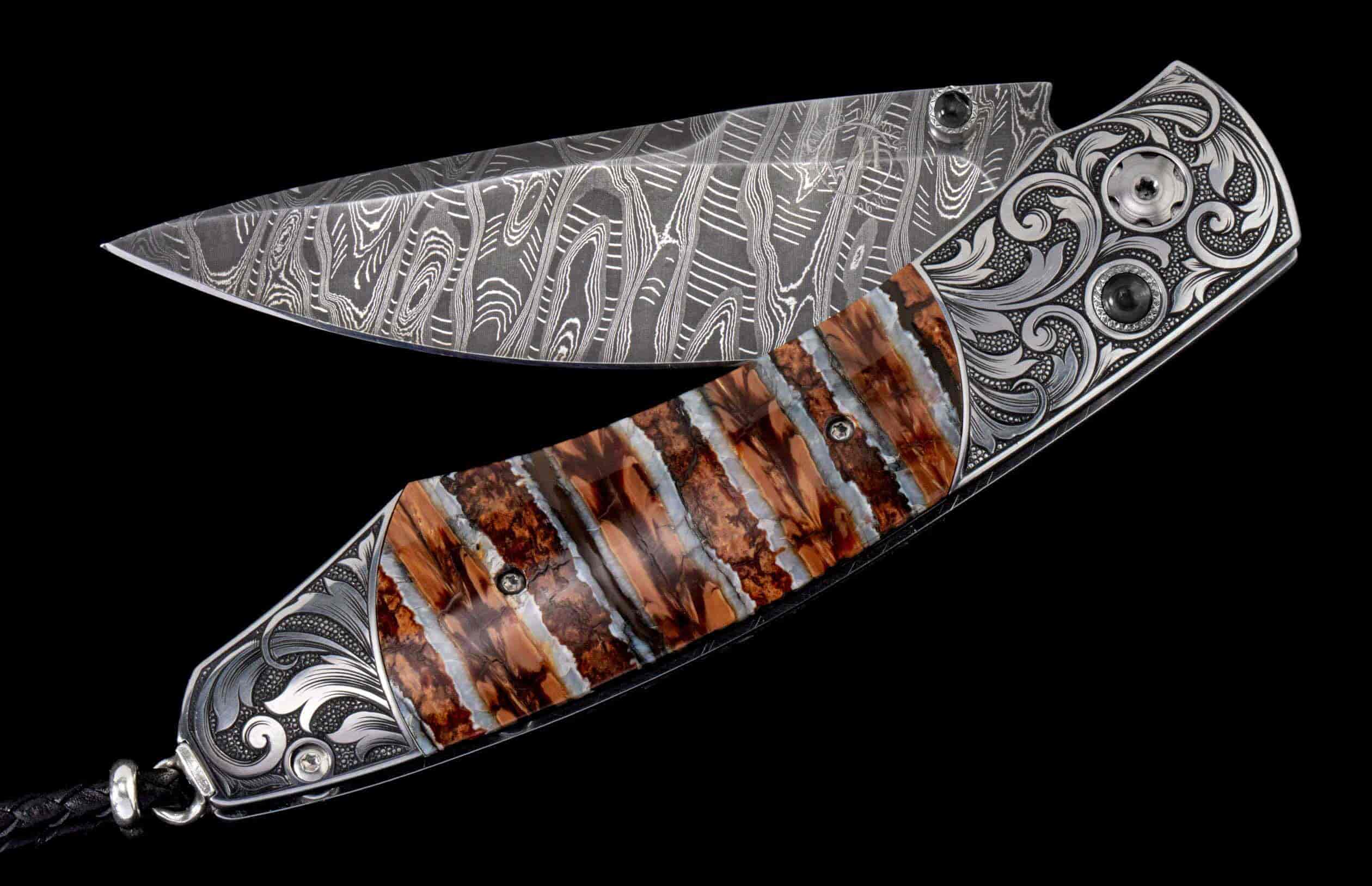Product Details
The Spearpoint ‘Buckhorn’ features stainless steel frame, hand-engraved by Tim George, inlaid with fossil woolly mammoth tooth. The blade is hand-forged 'Hornets Nest' damascus by Mike Norris; the one-hand button lock and the thumb stud are set with black onyx gemstones. A remarkable instrument with a full-size secure grip and versatile deep-belly blade, the Spearpoint epitomizes William Henry’s core philosophy – that superlative function deserves to be elevated to superlative art. The ‘Buckhorn’ features hand-forged metals, and hours of microscopic hand-engraving which are the hallmark of William Henry's most exclusive creations; a timeless heirloom to be proudly worn and used for a lifetime before being handed-down to another generation.
Product SKU: B12 BUCKHORN
Features & Specs
- One-hand button lock system
- Leather carrying case
- Shipped in an elegant wood presentation box
- Dimensions:
Blade 3.06" (77.7mm)
Handle 4.13" (104.9.5mm)
Overall open 7.19" (182.6mm)




